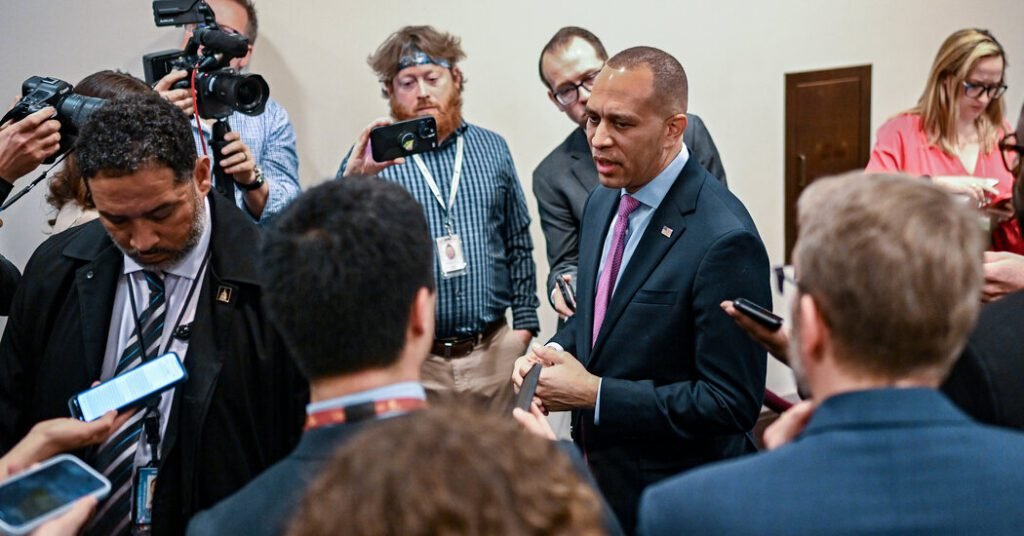House Majority PAC, the Democratic super PAC allied with Rep. Hakeem Jeffries of New York, the House Minority Leader, said Sunday it will spend $186 million on television and digital ads for this year’s election — its largest early investment in the history of the group.
The heavy spending will cover 58 media buys in 45 districts, targeting Republican seats in districts held by President Biden in 2020, as well as Democratic seats in districts won by former President Donald J. Trump. As part of that spending plan, $40 million will go toward digital advertising, the group said Sunday. Details of the ad purchase were first shared with CNN.
In an interview Sunday, House Majority PAC Chairman Mike Smith described the group’s plan for this election year as an “aggressive strategy.” Democrats need to win just four seats to secure a majority in the House, and have said that depends on races in New York and California. The group is spending the most in those states to turn over vulnerable Republican freshmen and to maintain the abundant — and expensive — messaging needed to get through to voters.
“The significant investment is the seriousness with which we take this election,” Mr Smith said. “The key districts that are going to make or break whether Democrats win or lose the majority this fall are somewhat consolidated, and many of them take place in the most expensive media markets in the country.”
Mr. Smith also noted that the group had invested early in advertising in states like Ohio, Montana and Michigan, where there are a handful of competitive U.S. Senate races and narrow margins in the presidential race. It is particularly focused on appealing to voters in districts with significant Black, Hispanic, or Asian American populations, in addition to swing districts.
Cash-strapped Democrats are shelling out huge sums to protect vulnerable candidates ahead of tough November elections. At the top of the ticket, President Biden and his allies have outspent Republicans so far: The president’s re-election campaign said it had $192 million, a figure that includes funds raised by the national party and allied groups. As Mr. Trump struggled to close the fundraising gap, his campaign boasted of pulling in $50 million from a high-dollar fundraiser it hosted Saturday in Palm Beach, Florida.
But Democrats have not shied away from the need for candidates further down the ballot to overcome Mr. Biden, whose declining approval ratings could weigh heavily. Asked whether such a large, early investment reflected the perceived challenges Democrats would face sharing a ticket with the president, Mr. Smith said the investment was not a response to the presidential election.
“He’s less concerned about anything other than the fact that we need four seats to win,” Mr Smith said. “We’re taking nothing for granted and making investments known now, across the battlefield.”
The ads will focus heavily on reproductive rights, the economy and perceived Republican “extremism” that has blocked progress in Washington. Ads will start on Monday. The number of purchases and the amount the group will spend may differ from the initial positioning as campaigns continue and groups reassess their priorities.

